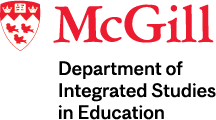 Current practice-based pedagogies are creating contexts for novice teachers to learn how to enact ambitious teaching in the university classroom through rehearsals (Lampert et al., 2013). These university classroom contexts provide idealized situations for novices to practice discourse moves that may elicit student thinking and facilitate productive science talk among students. However, as pre-service teachers (PSTs) engage in teaching practices, they may position themselves as certain kinds of teachers (e.g. science authorities, role models, learning-collaborators, traditional teachers or inquiry teachers) (Danielsson & Warwick, 2014). Thus, the enactment of ambitious practices in actual classrooms may be complicated by the multitude of Discourses (combination of language, action, practices, values, beliefs, symbols, objects, tools, and attributes of places that are associated with being a certain kind of person) that PSTs navigate as they learn to become elementary science teachers (Gee, 2010; Danielsson & Warwick, 2014). This study aims to determine how PSTs construct and navigate Discourses of elementary science teaching and learning, and how these constructions figure into how they interpret opportunities to enact ambitious science teaching practices from rehearsal settings to enactments in actual classrooms. Emerging from this framing of the study are two researchable questions:
Current practice-based pedagogies are creating contexts for novice teachers to learn how to enact ambitious teaching in the university classroom through rehearsals (Lampert et al., 2013). These university classroom contexts provide idealized situations for novices to practice discourse moves that may elicit student thinking and facilitate productive science talk among students. However, as pre-service teachers (PSTs) engage in teaching practices, they may position themselves as certain kinds of teachers (e.g. science authorities, role models, learning-collaborators, traditional teachers or inquiry teachers) (Danielsson & Warwick, 2014). Thus, the enactment of ambitious practices in actual classrooms may be complicated by the multitude of Discourses (combination of language, action, practices, values, beliefs, symbols, objects, tools, and attributes of places that are associated with being a certain kind of person) that PSTs navigate as they learn to become elementary science teachers (Gee, 2010; Danielsson & Warwick, 2014). This study aims to determine how PSTs construct and navigate Discourses of elementary science teaching and learning, and how these constructions figure into how they interpret opportunities to enact ambitious science teaching practices from rehearsal settings to enactments in actual classrooms. Emerging from this framing of the study are two researchable questions:
1. What Discourses do PSTs espouse about teaching and learning in elementary-level science classes; and
2. How do PSTs position themselves around these Discourses when they reflect on their own teaching practices in elementary science classes?
Qualitative data in the form of video-recorded post-teaching meetings, paired PST interviews, and individual interviews are presently being analyzed and thematically coded. Coding will determine how PSTs talk about elementary teaching, their epistemic orientations to science, and how engaging in a practice-based course has influenced their view of science and teaching, and vice versa.
Funded by: Tomlinson University Level Science Teaching Grant (2017-2018)
Research Assistant: Chris Gosling
References:
- Danielsson, A., and Warwick, P. (2014). 'All we did was things like forces and motion…': Multiple Discourses in the development of primary science teachers. International Journal of Science Education, 36, 1, 103-128.
- Danielsson, A., and Warwick, P. (2014). 'You have to give them some science facts': Primary student teachers' early negotiations of teacher identities in the intersections of Discourses about science teaching and about primary teaching. Research in Science Education, 44, 289-305.
- Gee, JP. (2010). An Introduction to Discourse Analysis. Routledge
- Lampert, M., Franke, M. L., Kazemi, E., Ghousseini, H., Turrou, A. C., Beasley, H., Cunard, A., & Crowe, K. (2013). Keeping It complex: Using rehearsals to support novice teacher learning of ambitious teaching. Journal of Teacher Education, 64(3), 226–243.
Contact: Allison Gonsalves, PhD
